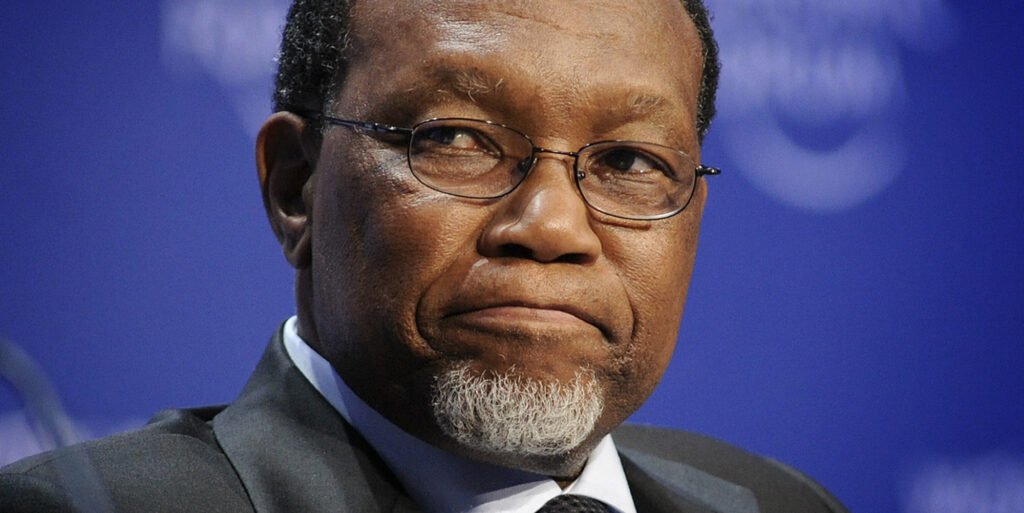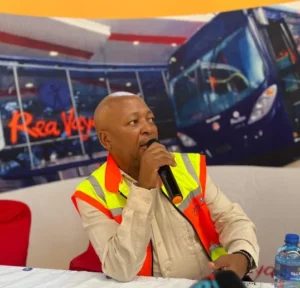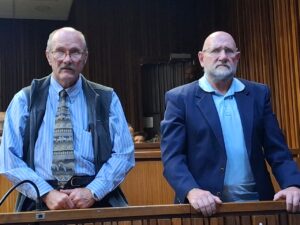By: Clyde Ramalaine
We are 36 days away from South Africans exercising their democratic franchise immanent in choosing its political leadership at the local government level. Yet, the road to 1 November is not an easy one for all major political parties. We know the official opposition faces challenges. So does the ANC, the majority party, whom I have earlier advanced, is perhaps drowning in a sea of what appears insurmountable challenges.
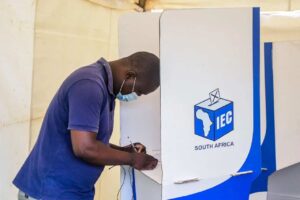
The ANC attests to a cacophony of organisational incapacity that failed to register its candidates’ lists for the upcoming elections timeously. It is an entity bed-ridden with financial woes, an organisation that has not paid its staff their rightful salaries for the last three months. It equally is a party that experiences its branches and regions resolving to take protests action and court cases to seek relief candidate lists. The ANC, in arrogance, will tell you it is not the first time that it is facing these types of challenges in finalising its candidate listing. Two weeks ago, ANC Chairperson for Elections Kgalema Motlanthe delivered his scathing report on the ANC and its readiness for elections.
Despite the often straightforward claims of renewal and self-correcting as advanced by some of its leaders, the actual status of the party in electoral preparation and organisational nucleus was laid bare last week by Motlanthe.
As we have alluded to in part one of this trilogy, Motlanthe flags critical issues of factionalism and the presence of money in defining an ANC divided to its core. He also flagged the leadership of the ANC as sowing divisions and lamented an organisation that has failed to work for unity.
While I agree with Motlanthe on the flagged challenges, I do not think his report makes the necessary linkages in drawing golden threads that may finger more the current leadership is perhaps not fit to lead the ANC. Granted, Motlanthe’s report is confined to the local government elections candidate lists and its attending muck of anomalies. However, the issue he flags are intertwined and cannot stand alone unless seen over the continuum of the leadership’s presence and what it means for the organisation’s sustainability. To this end, I herewith attempt to engage what the report in omissions failed to appreciate and link.
- Motlanthe’s report failed to appreciate the entrenched identity of factionalism as an economy by itself. If he closely heard the Limpopo ANC leader who laments the presence of ‘RET Forces controlling everything while the CR faction has nothing’, he would have known how entrenched the economy of factionalism was. It was always linked to resources, and it always has self-interest at its core. Meaning self-interest, careerism, gatekeeping, labelling, and the othering of political foes include a disturbing coagulum of ANC diseases propped up by this postulated notion of factionalism detailing an economy that is run in the ANC.
- Unfortunately, Motlanthe’s report failed to engage the danger of triumphalism of the CR17 and CR22 as manifested in the personality. Triumphalism is understood in a political context as an excessive triumph over one’s victory or achievements (used primarily in a political context). While Motlanthe’s report alludes to the destruction of the ANC, he falls short of identifying the toxic triumphalism that has come to define the interest of the Ramaphosa crowd.
- Motlanthe’s report does not ask how the construct and identity of ‘RET Forces’ came about. In comparison, it is easy to reduce this as coterminous to the invention of political foes in the ANC. A more accurate and sustainable assessment would be mindful that Radical Socio-Economic Policy is ANC policy, resolved from its 53rd and reinforced at its 54th Conference. To deny it ANC policy status because those whom the CR faction disagree with articulate it does not negate its status as ANC adopted policy. It then must enquire why the ANC under Ramaphosa has wholly abandoned it for opportunistic and self-serving reasons in claims of it being nonsensical, even considering it an expletive from the mouths of those the CR 17& 22 crowd vociferously condemn instead of engaging as age-old ANC culture. If there are any RET forces, as the video of a self-identified CR 17 Limpopo based leader laments as apparently in control, and for whom she pleads Motlanthe needs to intervene to ensure the CR 17 crowd also benefit, it cannot be understood in the absence of the fact that the Ramaphosa leadership dismally failed to implement.
- Motlanthe does not ask why only one ANC resolution, that on Israel, was implemented nine months following the 54th Conference. The ANC’s position on the Palestinian question, implemented by then Minister of DIRCO, Lindiwe Sisulu when she downgraded South Africa’s embassy in Israel to a Visa office, remains the solitary resolution implemented by this administration. This earned her the wrath of the powerful pro-Israel lobby, which ensured that Ramaphosa removed her from International Affairs. Again, the interest of factionalism at play that is willing to sacrifice ANC policies and resolutions at whim while conveniently making the step-aside resolution a factional fight to ensure some of the CR 22 crowd want out is removed. Motlanthe failed to identify how the application of the ANC step–aside resolution as implemented by its current National Office Bearers and a less objective but wholly capital controlled NEC aids the presence of disunity and factionalism.
- Motlanthe does not link the identified role of capital to the R1bn CR17 Election victory that arguably redefined ANC presidential elections in contest permanently.
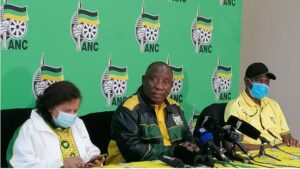 The problem with Motlanthe’s report as it relates to the role of money and its toxic influence on elections outcomes in the ANC, perhaps wrongly if not conveniently, starts with the de facto situation. The report laments the presence of capital or money and its ravaging impact on the organisational core. A more honest reflection of the cancerous role of money should have started with the NASREC outcomes that produced the current leadership. Suppose Motlanthe today bemoans the incessant and destructive influence of money on ANC elections outcomes. In that case, he could not avoid questioning why the ANC president needed more than an R1bn to win ANC elections. I vividly recall asking the DSG Duarte if the ANC realises its precedent with this R1bn rand elections and how this would become the standard for all future elections. DSG Jessie Duarte, at the time, either didn’t understand what I was getting at, or she didn’t know how to respond to this conundrum.
The problem with Motlanthe’s report as it relates to the role of money and its toxic influence on elections outcomes in the ANC, perhaps wrongly if not conveniently, starts with the de facto situation. The report laments the presence of capital or money and its ravaging impact on the organisational core. A more honest reflection of the cancerous role of money should have started with the NASREC outcomes that produced the current leadership. Suppose Motlanthe today bemoans the incessant and destructive influence of money on ANC elections outcomes. In that case, he could not avoid questioning why the ANC president needed more than an R1bn to win ANC elections. I vividly recall asking the DSG Duarte if the ANC realises its precedent with this R1bn rand elections and how this would become the standard for all future elections. DSG Jessie Duarte, at the time, either didn’t understand what I was getting at, or she didn’t know how to respond to this conundrum.
Also read: Motlanthe’s Report – Ramaphosa’s reluctant concession- cum self–exonerating defence for a response
Any analysis of the role and influence of money in ANC elections outcomes that is devoid of this unique NASREC 2017 moment when money became the ultra-dominant decisive reason for a specific political outcome as serious as an ANC presidency is simply not sincere and remotely serious about dealing with the root of a deformed ANC. When Motlanthe engages how money influences the branch and regional identities of the ANC, he warranted asking for the ontology of this praxis which was brought into the organization by Ramaphosa and his CR17 loading CR22 crowd.
- Motlanthe’s report fails to engage the challenge of corruption and how whistle-blowers in the ANC is dealt with under the Ramaphosa leadership.
- While lamenting the role of capital, Motlanthe falls short of engaging the issue of corruption that has come to define this administration. The corruption while playing out in a State and Government context, as we saw with the PPE Scandals and the litany of SIU cases and Water Sector corruption that runs into billions as laid bare by the former Minister Lindiwe Sisulu’s proactive interventions. The corruption that points to critical CR17 supporters and those CR 17 triumphalists has turned to its factional side to save their personal bacon. Motlanthe is not asking why the National Office Bearers failed to act when officially informed by Minister Sisulu. For example, the Amatola Water Board chairperson asked for political intervention to have the cases that appeared strategically blocked finalised.
- Motlanthe’s report does not problematise the presence of cabinet members directly flagged before the State of Capture Commission as beneficiaries of corruption from the BOSASA circus. It does not engage how some who support Ramaphosa’s interest are exempted from prosecution when political foes are natural enemies of the CR faction. The NPA becomes a useful instrument to stymie political formation as afforded in both ANC and SA constitutional senses. It does not ask why legitimate cases opened against the CR faction members, including the President goes nowhere and why the courts are so predictable in their findings on all Ramaphosa cases.
- Motlanthe’s report does not ask why the President hitherto has resorted to by all and any means keep the information of his donors secret. His report does not flag how transparency is done a disservice when the courts can seal records of a public matter in which a president of the ANC and the Country benefit.
- Motlanthe’s report does not inquire why whistle-blowers like Sisulu are removed, and a new minister’s work is undone. If Motlanthe seeks to bemoan the demon of factionalism, he would understand that the ANC factionalism is bequeathed to a South African government because it’s the same CR17, not CR22 crowd that is less interested to ensure proper governance but to ostracise and also a cover-up. After all, some key names as listed in court cases need to be shielded for their interest to ensure a CR22 victory.
- Motlanthe’s challenge with the Fetakgomo Tubatse ANC leader is not cognisant of how prevalent Luthuli House’s National Officer Bearers and NEC Members lead in this labelling of those who disagree with them. Motlanthe’s report, which includes a Limpopo-based classic example of how factionalism understood in CR17 and apparent RET Forces groups operate, confirms an ANC that hamstrung factionalism.
- When Motlanthe is disturbed by the virtual meeting, which had initially been presented as a meeting with the veterans’ league, only for him to realise it was being used to lobby for a particular faction to occupy mayoral positions in the Capricorn District, Polokwane, and Fetakgomo Tubatse local municipalities, he warrants following the golden thread of factionalism an entrenched practice and system that has come to define this leaderships’ hold on power. A phenomenon and practice that has come to saturate the ANC until its seeps in contamination of its governance mandate can be seen by factionalist cabinet ministers.
- Motlanthe does not show any discomfort with how ANC Members of Parliament and Cabinet were threatened, with cabinet reshuffles if these do not toe the line to vote along with the DA motion on the inquisition of the fitness of the Public Protector. It does not flag the emerging dictatorship of the Ramaphosa leadership as led by his manner by his enforcer. It does not inquire why Chairperson Gwede Mantashe stands accused of bullying everyone in misuse of the chairperson’s office. Motlanthe warrants asking why the ANC increasingly attests to a dictatorship where the Chairperson arrogates a right always to be right as they label others as counter-revolutionary. At the centre of these experiences is the factionalist agenda driven by the CR presidency.
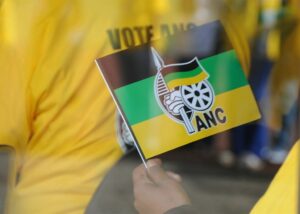
I wish to postulate that the ANC, since December 2017, never had a functional president but a president of a faction. Ramaphosa has remained the leader of the CR17 now morphed into the CR22 faction that must win at all costs regardless of what it would cost the organisation.
Perhaps some in the ANC commit an error is an expectation of a Ramaphosa leadership to bring organisational unity. They do not appreciate that his presidency owes its existence as the product of factionalism and continues to feed disunity for its upkeep. That is simply a bridge too far.
*Clyde N.S. Ramalaine
African Global News resident analyst


